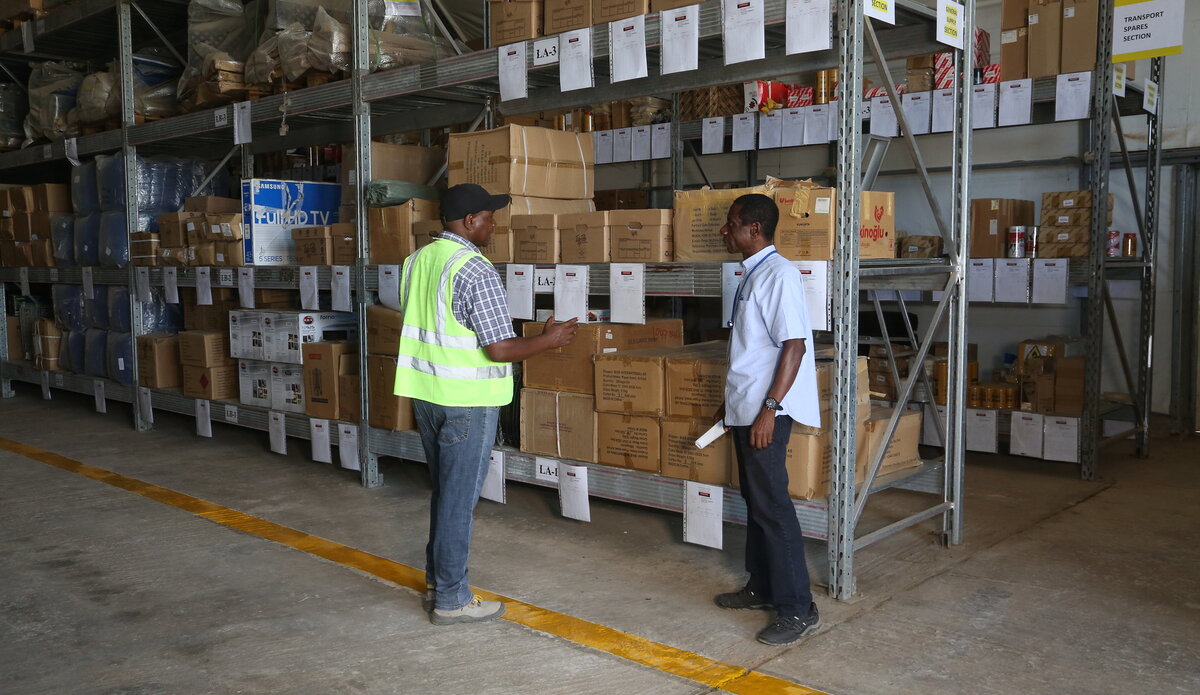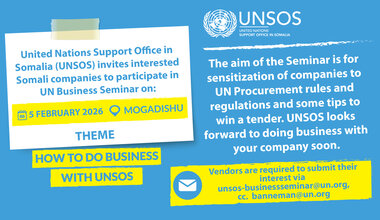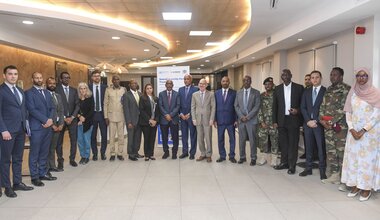UNSOS, AU, SNA collaboration boosts impact of logistics support in Hirshabelle
Jowhar – African Union Transition Mission in Somalia (ATMIS) troops and the Somali National Army (SNA) have attributed their combat successes in Hirshabelle State to the vital logistical support provided by the United Nations Support Office in Somalia (UNSOS).
While receiving the monthly delivery of UNSOS rations for ATMIS troops stationed in middle Shabelle region, the ATMIS Sector Five Logistics Officer Lt. Col. Sédécias Niyikuri, lauded the decentralization of logistical support to the sectors. He said the timely move had boosted the joint operations against the Al Shabaab.
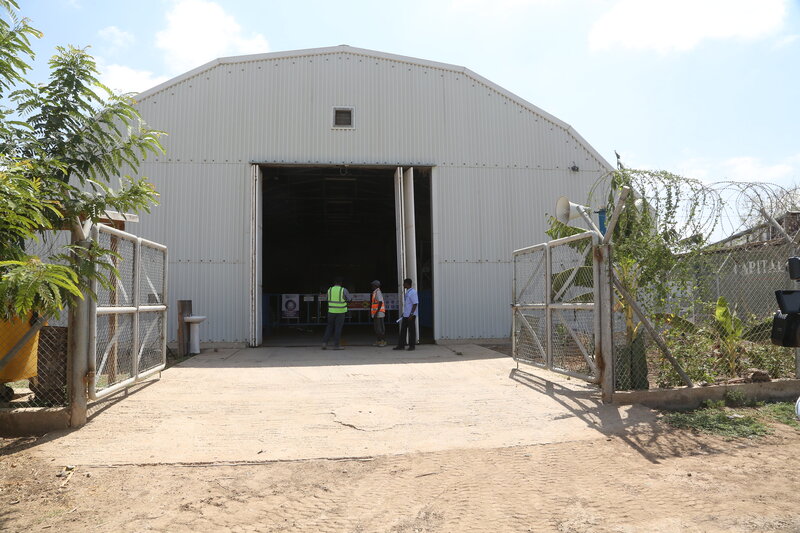
“The support provided by UNSOS is essential in facilitating our field operations. They support us with food rations for the troops, provide fuel for transport and powering the generators, maintenance of water treatment plants, construction as well as engineering,” said Lt. Col Niyikuri during an interview in Jowhar.
The decentralization of logistics support, he said, ‘has shortened the long processes’ and removed the long delays previously experienced in processing service requests.
“The support is very helpful because it provides us with the essential services and items that are required for the successful and efficient operations our troops. We are grateful because whenever we make requests, UNSOS responds promptly,” added Col. Niyikuri.
General Ibrahim Yussuf, the commander of the Somali National Army (SNA) 3rd Battalion based in the middle Shabelle region, said the support provided by UNSOS has boosted the troops morale and enabled them to conduct successful military offensives against Al-Shabaab militants.

“We are extremely grateful to UNSOS for the timely logistical support to our troops. The support we receive is crucial and contributes meaningfully to our operations enabling the security forces to pursue and counter Al-Shabaab” said Gen. Ibrahim.
“UNSOS also provides us with Medivac support which has saved the lives of many soldiers wounded in the battlefield and largely boosted the morale of our troops” he added.
In the middle Shabelle region, UNSOS provides logistical support to 1,400 Somali National Army (SNA) troops based in Cadalle and Bal’ad districts.
The UN logistics support body currently supports upto to 18,400 Somali Security Forces (SSF) personnel working in joint or coordinated operations with African Union peacekeeping forces. The number could be scaled up to 18,900 subject to availability of funding for the UN administered Somali Trust Fund.

“I am very happy to note that since January 2022, the goal (decentralization) has been achieved to the extent that all requirements and essential materials are always available in the warehouse. Decentralization has really contributed to most of achievements made in this sector,” said Moses Padi, the UNSOS supply chain assistant in Jowhar.
He added that, “clients get their requests processed in the quickest time possible compared to the past when all approvals were handled in Mogadishu.”
To avoid wastage and the procurement of unnecessary supplies, UNSOS usually consults clients on their needs and makes available the required stocks. This has boosted the timely delivery of logistical support to the clients.
“We always ensure that we have adequate stocks of supply section and engineering materials and MOVCON usually supports us in stocking our warehouses,” said Padi.
Gagan Banjara, the UNSOS Regional Administrative Officer in Jowhar, said the decentralization of logistical support has helped to ensure timely delivery of services to the clients.
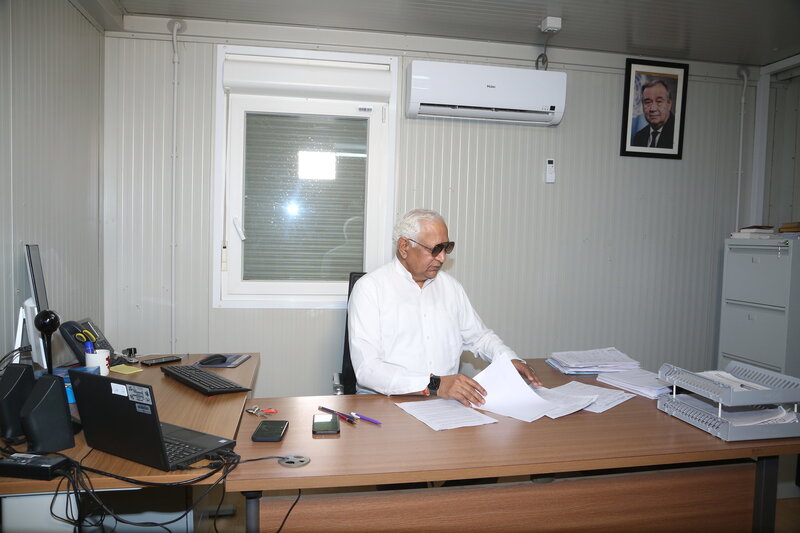
“The decentralization and delegation of authority has achieved many significant results. Under decentralization, there are eight significant areas which are highlighted in the concept. The majority of them are geared towards increasing our stock levels,” noted Mr. Banjara.
Through teamwork and close collaboration with clients and other stakeholders, UNSOS has been able to overcome most of the challenges faced in the initial stages.
“We focused on the culture of cooperation, and we found opportunities within the challenges, by doing this, we made our colleagues to understand, our clients to understand through regular meetings, regular interactions, open communication with our seniors and pillar head section chiefs in Mogadishu to make them understand the importance of decentralization,” emphasized Mr. Banjara.
 UN
UN
